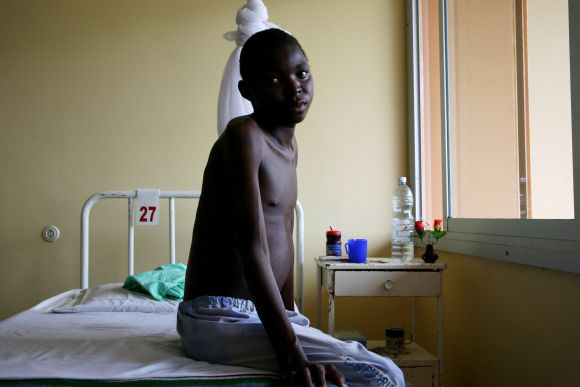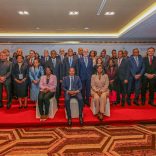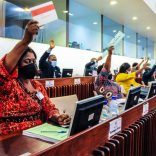Mozambique: UN calls for 'adequate funding' for women's initiatives
State Budget: Govt says social areas prioritised in fight against poverty – Mozambique

Lusa (File photo)
The Mozambican Ministry of Economy and Finance said on Monday in Maputo that education, health and infrastructure were priorities in the fight against poverty and inequality, after an NGO platform recommended “deep reforms” in the State Budget .
Speaking to Lusa on the sidelines of the public forum ‘Poverty and Inequality in Mozambique: What is at stake?’, the director of the Department of Economic and Financial Studies at the Ministry of Economy and Finance, Vasco Nhabinde, said that the government would continue to direct the largest portion of the state budget towards basic social areas.
“Most of the resources go to the education and health sectors, areas that we think should receive greater attention from the government,” Nhabinde said.
Also Read: Mozambique: Monitoring Forum urges “deep reforms” in 2018 Draft State Budget
The country, he continued, faces a huge challenge in relation to inequality, so it was necessary to ensure that economic growth results in job creation.
“Inequality is more a problem of income in cities and, as you know, the unemployment rate in Mozambique in big cities tends to be higher,” he said, pointing out that it was normal for rapidly growing economies to witness worsening inequalities, a situation which calls for inclusion policies.
The Mozambican Budget Monitoring Forum (FMO) recommended on the 16th November that the government make “deep reforms” in the proposed State 2018Budget, which it considers to be “unfair”.
The FMO advocates “a far-reaching reform of the revenue side” and “removing tax exemptions for megaprojects”, and on the expenditure side recommends a comprehensive review of perks and other state benefits.
The recommendations head the FMO list presented by consultant Thomas Selemane at a public meeting in Maputo on “Civil society concerns and questions about State Budget 2018”.
The session addressed 27 questions to the Ministry of Finance, which the FMO says it invited to the session but which did not attend.
Among the numbers the FMO had recommendations on are what it considers low expenditure on education and health, as compared with defence and security.
Teacher hiring is being cut by a quarter, and the previous figure was itself insufficient to cover teachers leaving the profession, and development partners are concerned over low values for water and sanitation – the lowest, in fact, for the last decade.
The FMO also stresses that the state plans to continue to fund itself increasingly from within the country, increasing domestic debt and diverting capital from small and medium-sized enterprises.
The proposed state budget for 2018 foresees no subsidies for public transport, flour or bread and projects a reduction in support from 2.7 billion metical in 2017 to 700 million metical in 2018.
The difference raises questions as to what other subsidies will be discontinued.
Also Read: Mozambique: Government pledges on Health and Education fall on deaf ears












Leave a Reply
Be the First to Comment!
You must be logged in to post a comment.
You must be logged in to post a comment.